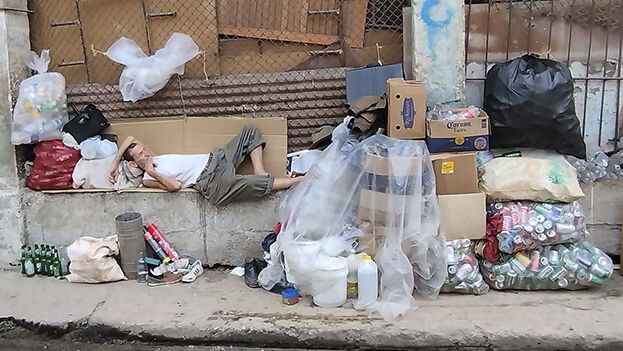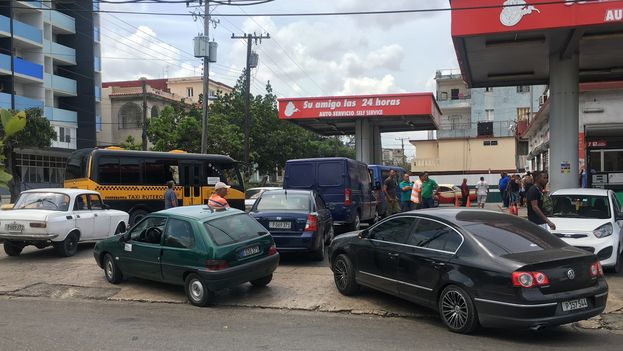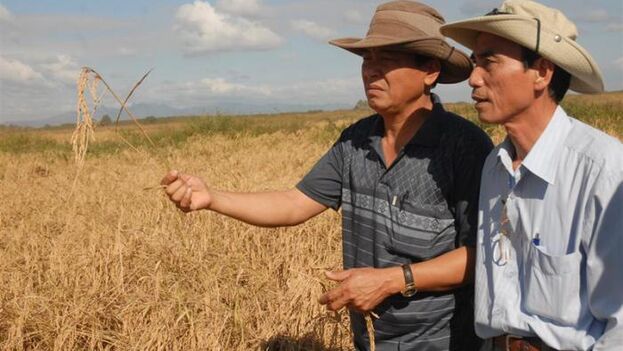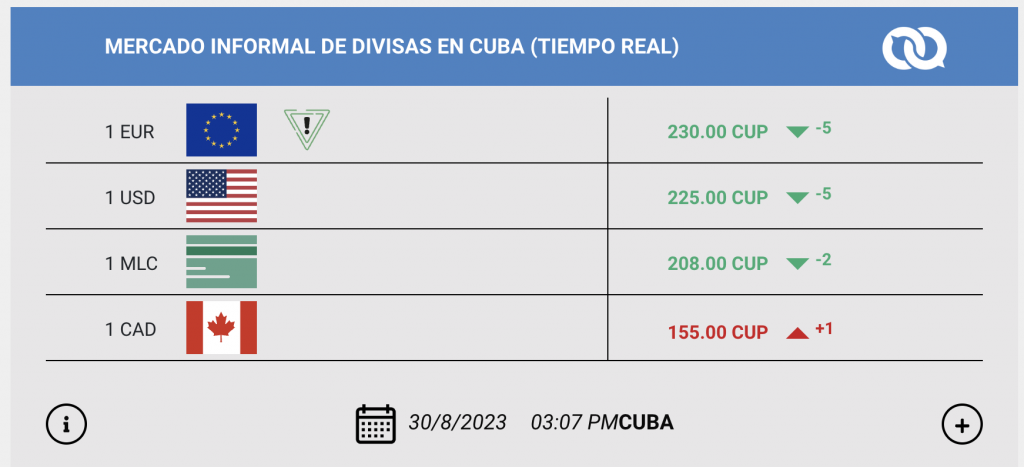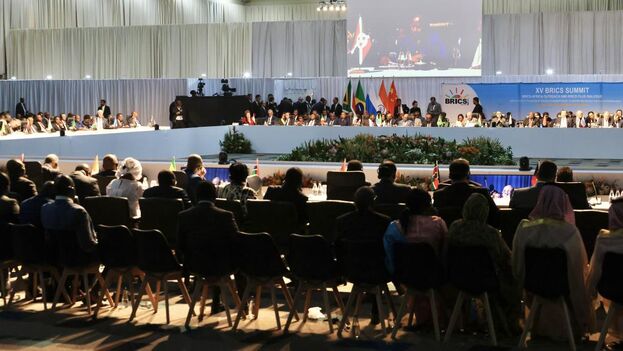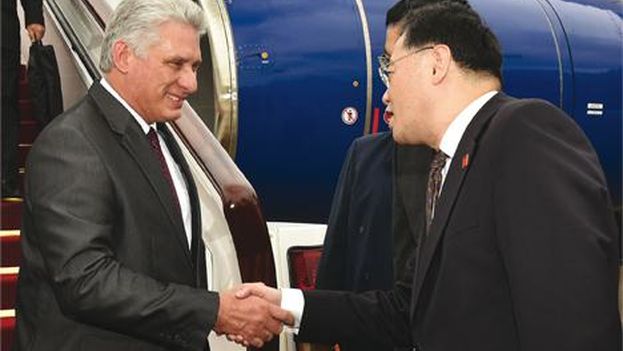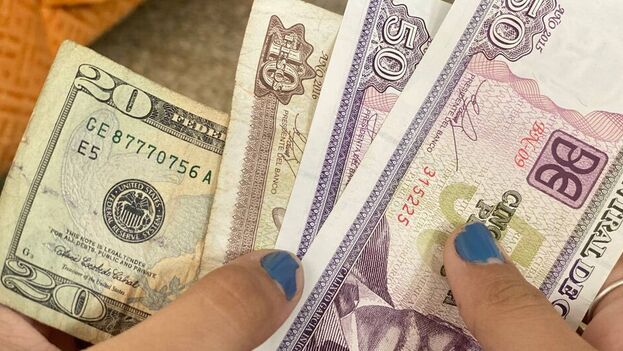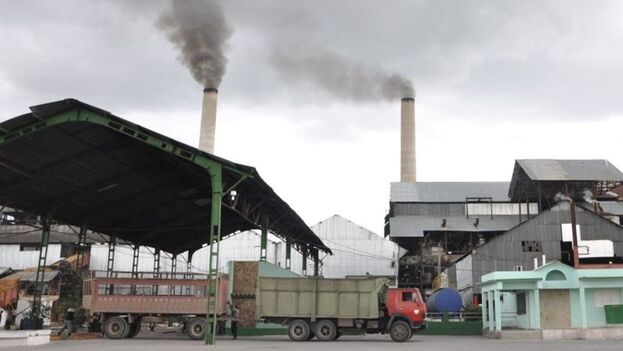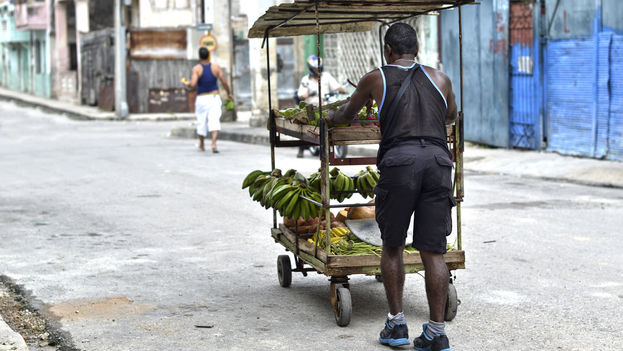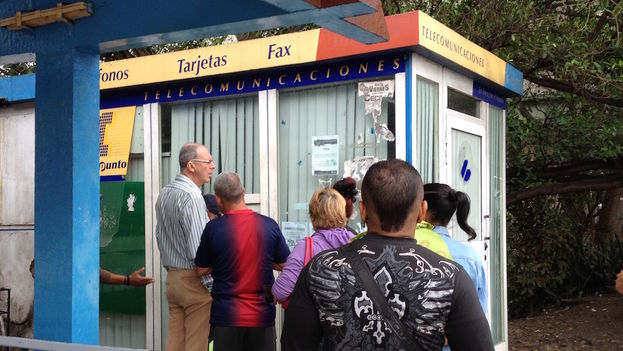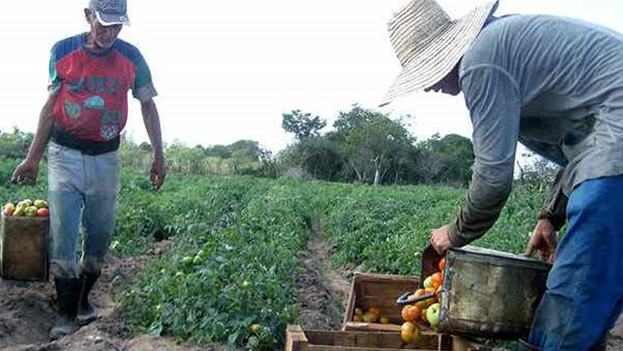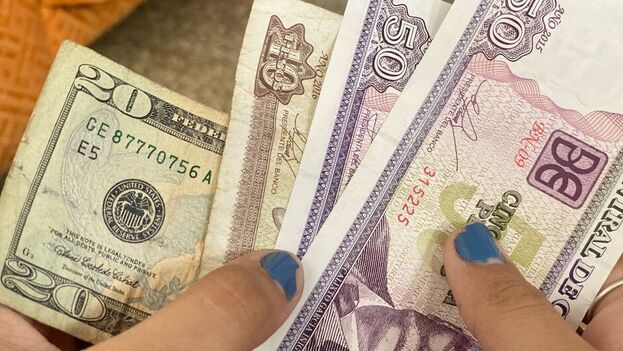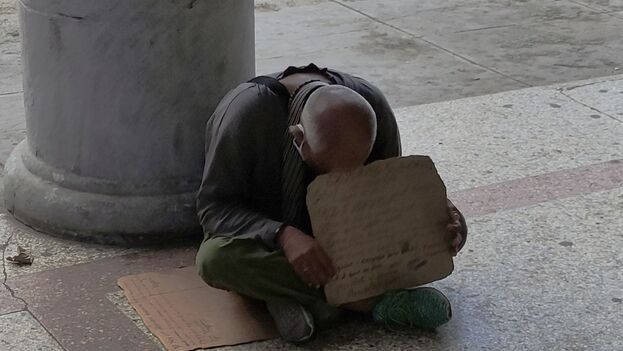
![]() 14ymedio, Elías Amor Bravo, Economist, September 29, 2023 — In the latest edition of the State TV’s Roundtable program, Cuba’s Minister of Economy Gil reaffirmed the “socialist” model to get the Cuban economy out of the rut, a combination of rejection of the market and a determined commitment to planning that are, in short, the causes of the vicious circle in which the economy finds itself. There is no better way to die by killing. Castroism, in the terminal phase, can still cause a lot of damage to Cuban society. Because contrary to what the minister said in the program, Cuba’s economy is not on “any path of economic recovery.” It’s very close to collapsing. No one should be fooled.
14ymedio, Elías Amor Bravo, Economist, September 29, 2023 — In the latest edition of the State TV’s Roundtable program, Cuba’s Minister of Economy Gil reaffirmed the “socialist” model to get the Cuban economy out of the rut, a combination of rejection of the market and a determined commitment to planning that are, in short, the causes of the vicious circle in which the economy finds itself. There is no better way to die by killing. Castroism, in the terminal phase, can still cause a lot of damage to Cuban society. Because contrary to what the minister said in the program, Cuba’s economy is not on “any path of economic recovery.” It’s very close to collapsing. No one should be fooled.
There is not a single indicator of the economy that improves. In fact, the Roundtable gave examples of short-term anxiety for survival and mentioned the case of children’s milk, which is not assured, or coffee deliveries that are increasingly dependent on imports. There is no area in the Cuban economy that shows positive data, and it cannot continue like that.
Even the renowned “regulated basic basket” is at the center of citizens’ concern, because there have been delays and products that have not been able to be delivered in the corresponding month. External dependence on food requires having foreign currency that the people don’t have. The solution for the communists is to stop importing and to reduce the population’s food. A disaster. continue reading
The Roundtable focused on the analysis of the “complex situation that the country is experiencing in terms of electricity generation due to fuel deficit, as well as the impact on other priority aspects for the people,” with the participation of the aforementioned Alejando Gil and the Minister of Energy and Mines, Vicente de la O Levy.
Vicente de la O Levy was in charge of starting the program and explained “the country’s strategy to guarantee the stability of electricity service, especially in the months of July and August” with high level of consumption. He referred to an action plan aimed at increasing the hours of planned maintenance, in order to recover power and not have to work against the accumulating effects. In that sense, he cited the recovery of Unit 6 of the Mariel Thermoelectric Plant and the sites of Mariel and Moa themselves, which allowed the incorporation of more than 300 megawatts (MW). However, blackouts continued to occur.
He also talked about the drilling of two Energás gas wells, which were not available due to lack of fuel and the maintenance to Felton. The minister said that all these actions bore very good fruit, and that, despite a record increase in consumption in July and August, it was possible to maintain service with minimal effects, which only reached 2% compared to the previous year, maintaining the well-known blackouts, always present in the reality of the country.
The minister also said that there is now greater availability in terms of power than in previous moments, but he said that “the problem is in the fuel,” and despite the efforts made with all the fuels, the problem remains. At that point, he said that “we have not reached zero, nor are we going to reach zero” – a really disturbing phrase that gives a fairly approximate idea of the current situation.
Regarding the energy matrix, consumption is still highly concentrated in non-renewable energies. The current model has really changed little from the one that existed in Batista’s time, despite the fact that 64 years have passed. This is the case of diesel, of which Cuba consumes between 120,000 and 130,000 tons per month.
So that in the face of the impossibility of acquiring fuel, the only way to alleviate the shortage is by reducing consumption, and here the minister spoke of energy-saving measures, both in the state and residential sectors, the latter with the highest consumption of that service. Yes, energy savings in Cuba. Seeing is believing.
The minister is asking Cubans to live in the dark, since, he said, a 20-watt light bulb turned off in four million homes, means a savings of about 8 MW, which is what a municipality consumes on average. The minister wants a better organization and rational use of air conditioning equipment, but although he didn’t say it, that means turning everything off and returning to the caves.
And at this point, after explaining the severity of the moment, he pointed out that an improvement can occur from October, with the entry of Energás, and again, the gradual arrival of fuel. This argument served for the usual bravado against the northern neighbor and the embargo/blockade, which, according to the minister, continues to be the main obstacle to accessing spare parts and other necessary resources in the maintenance of thermoelectric plants. False. The main obstacle is Cuba’s lack of credit in the international financial markets because of not paying its debts. Things have to be explained, and the truth should always be told.
He then said that he continues the action plan to recover the generation units with the use of national fuels, which are highly polluting and go against any environmental effort. He also said that the Electric Union, in its strategic development, is moving towards renewable energies, to achieve independence from imported fuels, but he did not cite percentages or investment value.
At this point, the Minister of Economy Gil said that saving does not mean to stop doing but to consume less without paralyzing activities, and he added “that the top management of the country, in a meeting with the authorities of all the provinces, analyzed in detail the strategies that are to be adopted in each territory.” And here came the surprise of the night when the minister recognized that among the decisions are those of “postponing activities that are not of an urgent nature, resuming teleworking where possible, and reducing the use of high-consuming equipment, such as air conditioners in offices,” measures that recalled the times of the pandemic.
These decisions, although the minister does not acknowledge it, imply a decrease in the level of activity in some workplaces, which accentuates the severity of the economic stagnation and recession in which the Cuban economy finds itself, and with it the difficulties to get out of the current crisis. The solutions and alternatives that the authorities are looking for, once again, go against the economic situation that is meant to be fixed.
The decision to prioritize fuel to agriculture in this period of deficit, to guarantee the production and supply of food to the agromarkets, is a desperate action that says very little in favor of who adopts it if then there are effects due to lack of fuel in public, local, intermunicipal, interprovincial, workers’ transport, and the ferry to the Isle of Youth.
The most serious of all is that this set of measures arise from an exercise of central economic planning, which is still in the DNA of the Cuban communist regime. This is summarized by Minister Gil when he says, “All those who receive fuel designations know the amount decreed and can better organize themselves to look for available alternatives. It’s a momentary experience that we can maintain.” Does he really think that’s the case?
The minister was convinced that there will be palpable effects, and that the economy is approaching a scenario of contraction, but “there will be no collapse.” It is not so clear that this will be the case since Prime Minister Marrero, a few days ago, said about the energy saving measures that they “must be extended to all economic actors,” in clear contradiction to that discrimination expressed by the minister. The Cuban economy has been collapsing for a long time, and, what is worse, to deny it or not recognize it is a reckless attitude of the authorities. They should take a look at themselves.
Translated by Regina Anavy
____________
COLLABORATE WITH OUR WORK: The 14ymedio team is committed to practicing serious journalism that reflects Cuba’s reality in all its depth. Thank you for joining us on this long journey. We invite you to continue supporting us by becoming a member of 14ymedio now. Together we can continue transforming journalism in Cuba.

